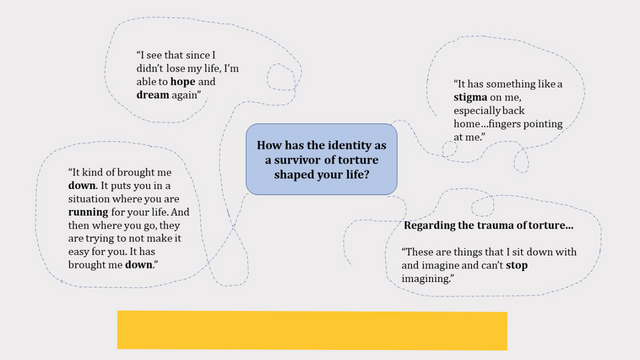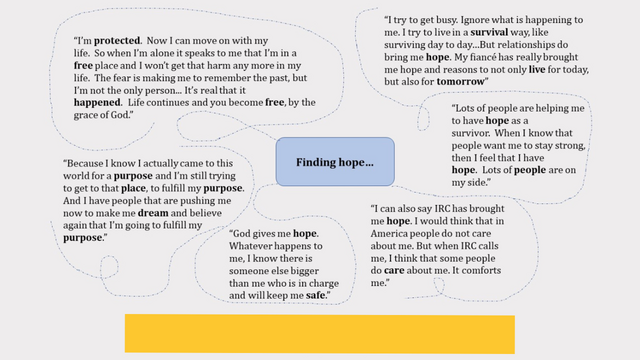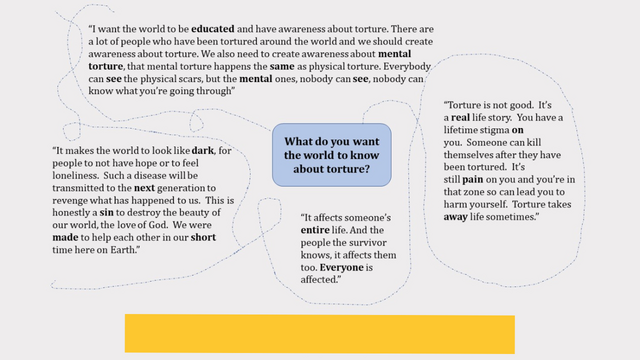Last year, the International Rescue Committee (IRC) in Arizona honored the International Day in Support of Victims of Torture and this year we again commemorate this day. The United Nations designated June 26th as it marks when the UN Convention Against Torture and Other Cruel, Inhuman or Degrading Treatment or Punishments came into effect in 1987. Yet in 2021, over 30 years later, torture continues to permeate societies around the world, despite it being an international crime.
“Torture happens every day. It is up to every person in our society to make sure to end it.”– Survivor of Torture, IRC Client
The United States Office of Refugee Resettlement (ORR) estimates that as many as 44% of refugees, asylees, and asylum seekers are either primary or secondary survivors of torture. For almost 10 years, the IRC in Arizona has been providing specialized services to Survivors of Torture (SoT) in both Phoenix and Tucson offices. The SoT program strives to provide healing services to the whole person, through comprehensive case management that addresses the mental, physical, social, and legal needs of survivors. To support healing from the trauma they suffered, survivors participating in the IRC SoT program are also able to access individual counseling and therapeutic services with licensed clinical therapists. Throughout the coronavirus pandemic, when the world seemed to shut down, services to SoT clients continued. Staff assisted survivors in preventing housing and food insecurities, accessing legal support for asylum claims, obtaining COVID-19 testing and vaccination, and addressing a variety of other medical and mental health needs.
The SoT program can serve anyone regardless of immigration status, including refugees, asylees, and asylum-seekers. As the IRC continues to welcome individuals and their families into safety in the U.S. from violence and persecution, the need for services targeted to survivors of torture will likely increase. For asylum-seekers, finding much-needed basic services are a challenge as, unlike refugees, asylum-seekers are often not eligible for most public aid resources and other services.
This year to honor June 26th, IRC case managers and clinicians reached out to SoT clients to discuss the Day of Remembrance and hear from them about what it means to be a survivor of torture. Below are a variety of quotes shared by IRC survivors.



Torture persists as a tool to silence and control individuals, their families, and their communities. It is the deepest violation of what makes us human. However, what also makes us human is our resiliency. On June 26th at IRC Arizona, we honor those who have survived torture and those who have been killed by torture, and we call to end all torture.
“…we were made to help each other in our short time here on Earth.”— Survivor of Torture, IRC Client